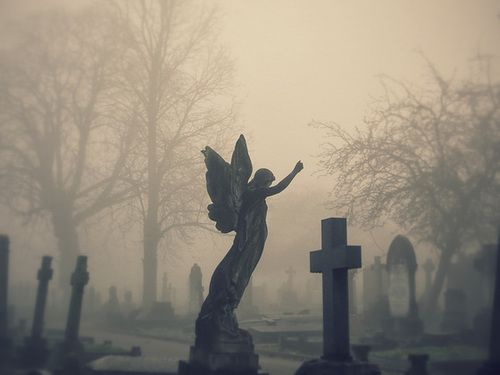Michael Martin's Blog, page 9
January 30, 2021
DESTROY ALL MONSTERS!

First, a rundown of recent news:
Apparently a bunch of baristas took down some Wall Street hedge fund managers by COMPLETELY OWNING THEM. Don’t worry. Congress will save them (not the baristas). Robinhood actually robs from the poor to give to the rich. From what I can gather, exactly half of the country is on a “watch list.” Transhumanism has progressed beyond the “theoretical” stage. China has moved from nasal swab testing to a rectal model. The US capital looks like the set for a ...January 26, 2021
The Vanishing of the Faeries

This is an excerpt from my forthcoming book, Sophia in Exile.
In the early twentieth century, there was a veritable faerie craze, an artifact of which is Peter Pan, a rousing success in both print and in the theatre—not to mention the early silent film version from 1924. Not only Barrie’s work, but the discovery of the Cottingley Faeries who becamecause célèbre in 1917—even though most (but not all) of the photographs of faeries captured by two Yorkshire lassies were later admitted to have been...
January 21, 2021
Talking with Angels in a Time of War

From as early as I can remember, I have had an aversion to the prospect of war.
This might be due to having been a child of the 1970s, watching the death and MIA counts on the morning news before the Mighty Mouse cartoon kicked off at 7:00. I knew as a boy I didn’t want to become a soldier and leave my family. But my concern just as well might not be due to the somber statistics I saw on the newscasts. Most of my friends and contemporaries shared a similar experience, and they didn’t seem to be...
January 18, 2021
“All natural arts and human wisdom are given by the stars”: On Creativity

The following is an excerpt from my forthcoming book, Sophia in Exile.
Because human creativity, as ubiquitous as it is, defies explanation, recourse to religious language offers what may be the only rhetorical ecosystem up to the task. This is most obvious with the fine arts, of course, but the innovative dimensions of the practical arts likewise trespass into the numinous precincts of the hallows. It is worth noting, then, that the language we use for the creative individual often mimics our...
January 11, 2021
Captive Minds

I have written before about how Czeslaw Milosz’s 1951 book The Captive Mind is one of the most important—and seldom read, alas—books of the twentieth century. The book is a taxonomy of the usually gradual (but absolute) capitulation to Communism of a number of Polish intellectuals familiar to Milosz following World War II. Intellectuals, in my experience, are the most prone to ideology, and the higher up the academic (BA, MA, Ph.D.) scale they are, the more inclined they are to an uncompromising...
January 8, 2021
Jacob’s Ladder: Sophia and Creation

The following is an excerpt from my forthcoming book, Sophia in Exile.
Jacob named the site of his vision Beth-El, “the House of God,” and there is no reason to believe that every parcel of Creation is not a potential Bethel. Indeed, religious experiences tied to nature are too numerous to count, almost universal in their distribution. I would wager that they are among the most common of human experiences, though many if not most people lack a sufficient language for describing their experience...
January 2, 2021
Farming and the Holy Grail: Blood and Water

The following is an excerpt from my forthcoming book, Sophia in Exile.
Biodynamic farming reinforces the very Christian, very Catholic notion of the sacredness of the year. The agricultural cycle and the liturgical cycle are (or used to be) beautifully intertwined. Much like Celtic knotwork, to remove one of these strands from life is to destroy life’s integral unity and beauty. Unfortunately, that is precisely what happened over the course of the centuries until now we find Christianity and ag...
December 28, 2020
The Following Story Is Based on True Events: ‘A Hidden Life’ and My Hidden Life

Just about a year ago, my wife and I went to the cinema. This may not seem like a big deal to most people, but it is to us. In nearly thirty years of marriage, we have only left the house to catch a film maybe four or five times, no doubt a result of having nine children and a farm. But we went twice in 2019. The first time was to see The Biggest Little Farm, a documentary about a couple’s foolhardy adventure into biodynamic farming. When we left the theater we found a post-it on our windshield ...
December 20, 2020
Reading Boehme on the Darkest Day of the Year

The following is a poem from my collection Meditations in Times of Wonder and written on a Winter Solstice six years ago or so. I think it while I was also writing The Submerged Reality. A solstice meditation.
Reading Boehme on the Darkest Day of the Year
What is it that causes a flock of starlings, all at once,
To wheel, turn, or tumble in the magnificent breathing
Of their migration, rising from bare oak trees, swamp maples,
And alders, from telephone wires and cracked asphalt,
Falling ont...
December 17, 2020
In Which the Author Is Forced to at Last Admit That He Is Indeed a Hobbit

It seems J. R. R. Tolkien has been my constant companion these forty years. I first read The Hobbit and LOTR when I was about eighteen or nineteen. I liked the books and was disappointed that the fantasy fiction I tried to read afterwards could never quite measure up. I include C. S. Lewis in the “not measure up” category, since, to me anyway, Lewis always seems a bit condescending about what he thinks “children” want. Not that he’s a bad writer. Tolkien lives in a different universe completely....



